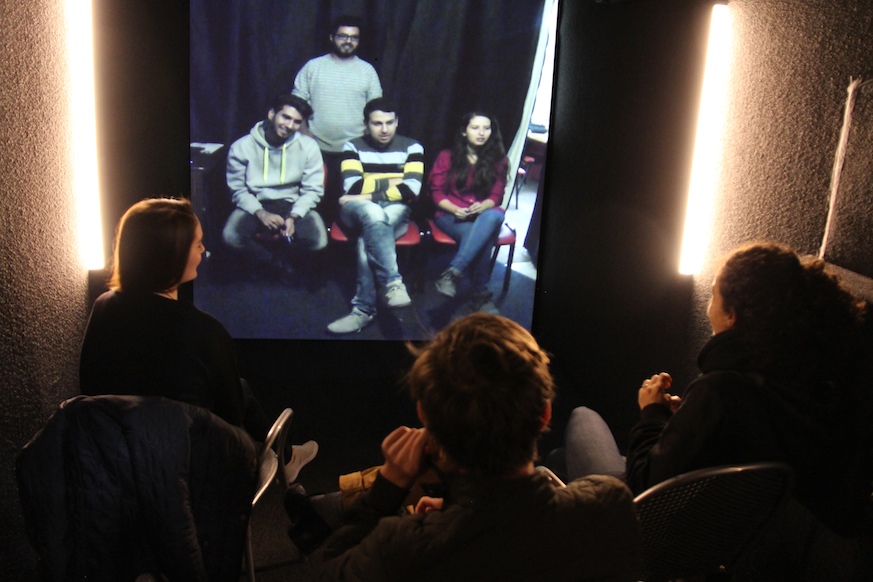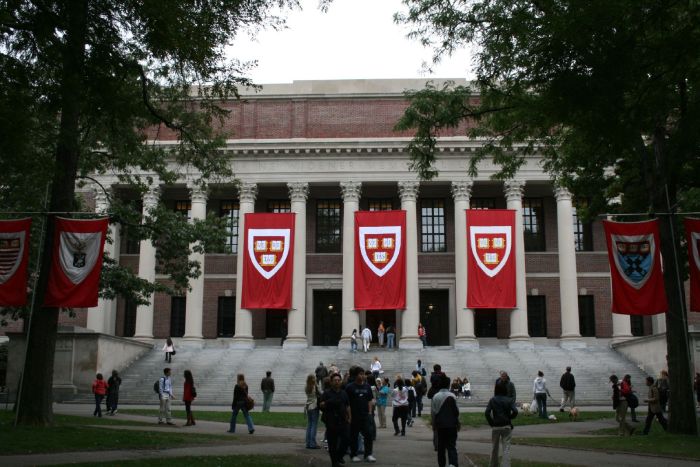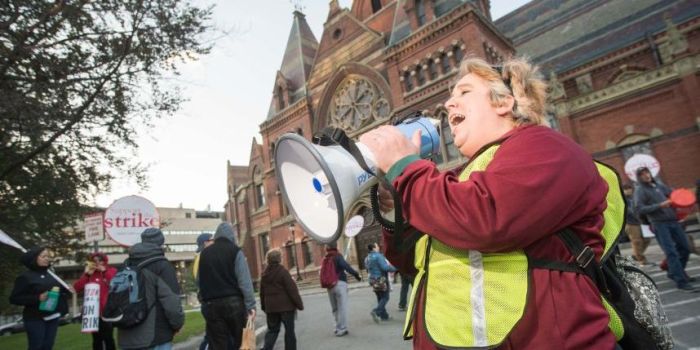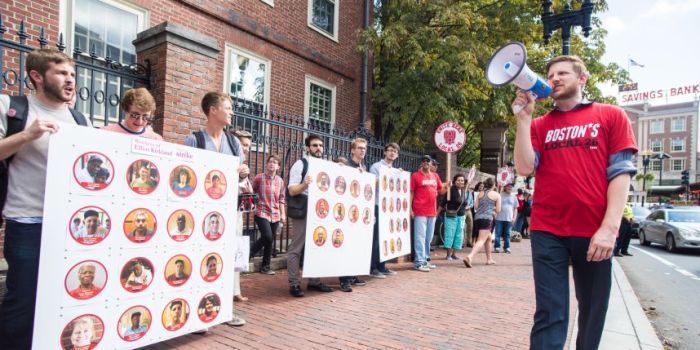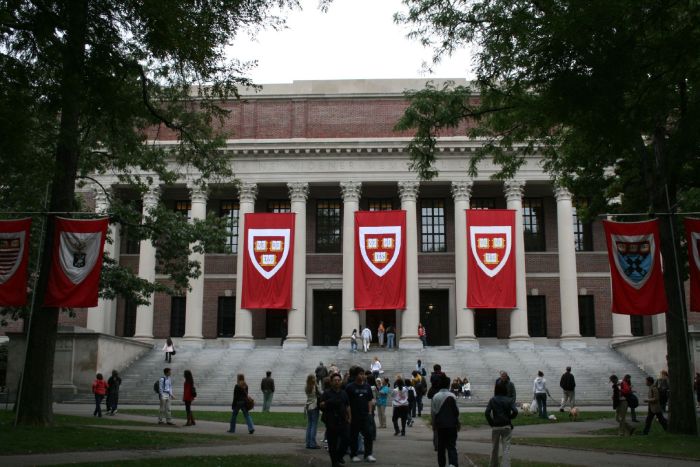On Harvard’s campus, there’s a portal to another world — literally.
Inside an unassuming shipping container that sits on the grass at Harvard Divinity School, students, staff and other visitors can come face-to-face with refugees around the world.
The portal is part of a project by Shared Studios, an art, design and technology collective, and it features immersive technology to connect people from around the world in real-time audio and video conversations.
This portal ended up in Massachusetts thanks to a partnership between Shared Studios, the Religious Literacy Project at Harvard Divinity School, the American Academy of Religion and Boston College.
Diane Moore, director of the Religious Literacy Project and a Harvard Divinity School lecturer, said that a crucial objective of the literacy project is to show that religion is not just about beliefs and practices but is connected to a “strong sense of values embedded in cultures and communities — sometimes explicitly religious, sometimes not.” The portal is a way to share these values across religious and geographical lines.
Recently, Moore visited a displaced persons camp in Erbil, Iraq, and worked with refugees — some of whom had been displaced for more than three years due to the fighting in Mosul.
“One of the main concerns they have is that people hear and understand their stories,” Moore said.
It was important to her to help bring the portal to the Boston area “as just one small way to help connect” people around the globe, especially concerning migration and immigration.
“There are 65 million displaced persons around the globe,” she said. “Those numbers are so impossible to get your head around, it really is then about the opportunity to connect with individual people to understand both their challenges and their resilience.”
Moore has been teaching specifically about the Syrian crisis, and the portal has enhanced those lessons for her students, but it’s also open to anyone. Multiple high school classes have visited to talk with other teens, and poets came in to share their work. People have talked about their lives and shared specific stories from prompts, and they even sang songs together.
“The power of the portal is it really is an intimate space,” Moore said. “It’s inside this container, which is then shielded from outside. You are literally face-to-face at a full body screen with people, so it feels like — the comment we heard from many people is that it feels like you’re in the room with them.”
Moore hopes to establish a permanent portal on Harvard’s campus in the future, which could be used for a number of creative global collaborations. In the meantime, Thursday, Nov. 9, is the portal’s last day at Harvard, but it’s staying in the area by heading to Boston College next. It’s there from Nov. 13 to 16; register for a timeslot here or through events.bc.edu/refugee_portal.

